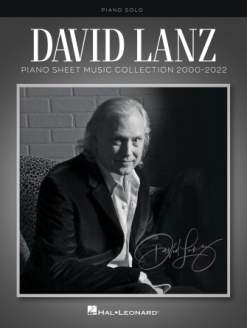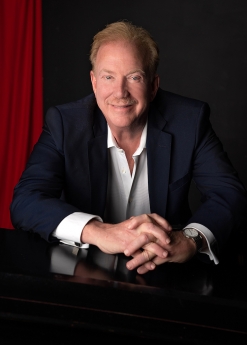Greetings, Everyone!
I hope this finds you well and getting ready for summer! We've been having lots of wind here on the Oregon Coast, but not so much rain - finally! Florence is called "The City of Rhododendrons," and it's been spectacular watching them bloom this past month!
I have lots of news for you, so let's get started!
The first cast iron frame for the piano was introduced in 1825 by Alphaeus Babcock of Boston. This allowed for much greater string tension and higher playing volume.
George Gershwin applied to study composition with Maurice Ravel at the Paris Conservatory. Ravel rejected him, expressing, "If you study with me, you will become a second-rate Ravel when you are already a first-rate Gershwin."
The first "baby" grand piano was built in about 1860 by Henry Lindeman. He called it a "cycloid" piano. It was Steinway who began calling his smaller grands “babies."
New Reviews: We have quite an eclectic collection of new reviews for you again this month! We have music from Spain, Sweden and Serbia as well as the US, with a lot of variety in the music. You can find all of the reviewed albums
here. I also reviewed a new "Best Of" sheet music collection from David Lanz with selections from albums from 2000-2022. You can find that
here.
From about 1916 to 1925, almost every concert pianist of any prominence in the US made player-piano rolls.
Several devices have been invented over the years to automatically turn pages for pianists, but for some reason, none of them caught on - until the iPad.
There were no more than twelve music shops in London in 1750. In 1794, there were 30; and by 1824, there were 150!
New Interview: I did a very interesting and candid interview with Terry Lee Nichols in May. We talked a lot about his amazing new album,
Metamorphosis, as well as his background. Check it out
here.
Pianoforte Magazine was the first publication to contain nothing but piano music. It first appeared in London in 1797. As a promotional come-on, each weekly issue contained a promissory note signed by the publisher. After someone had bought 250 copies and had 250 of these notes, they were supposed to be redeemable for a "Brilliant and elegant Pianoforte, far superior to many instruments sold for 25 guineas each." It is unknown whether or not anyone was able to trade in the coupons for a new piano.
Many musical pieces are named "Scherzo." It means "joke."
Clara Schumann was the first performer to play Beethoven's sonatas for a concert audience. She did this in 1837, about seventeen years after the composer's death.
Hip Update: Well, I finally saw an orthopedic doctor and am scheduled for hip replacement surgery in later July. Doesn't that sound like fun? He said the arthritis is so bad he doesn't know how I've stayed on my feet this long. So, that will likely mean more time for reviewing music, but probably not for the first couple of weeks. We'll have to see how it goes. I'm sure I'll have more details in the July newsletter, but I might have to skip the August issue - or postpone it. Anyway, I would recommend that if you play or teach piano for long sessions, switch feet on the pedal from time to time. I can play a lot longer now pedaling with my left - my back doesn't get as tired either - but the damage was done before I had any idea at all that that was causing the problem. I'll keep you updated!
In 1900, there were 7000 piano manufacturers in The United States, including families who made pianos in their homes. One out of every six people in America was involved in some aspect of the piano business.
The most expensive piano ever is the upright piano featured in the 1943 film, Casablanca. The $3.4 million price tag included a photograph signed by Humphrey Bogart and the chewing gum stuck under the keyboard (possibly from one of the actors in the film). This wooden upright piano is decorated with intricate designs and has only 58 keys. The sound quality of this famous piano remains a mystery since nobody played it in the film. Instead, a pianist off-stage played the song while the characters acted out their parts.
Polish architect Daniel Czapiewski created a grand piano that weighs nearly two tons and measures 20 feet, making it the biggest grand piano in the world. It is called "Stolëmowi Klawér" and was unveiled in January 2011.
June Birthdays: June seems to be one of the biggest months for pianists. Here is a sampling!
6/2: Jose Luis Altamirano B
6/4: Suzanne Ciani
6/5: Julie Hanney
6/7: Lynn Tredeau & Carol Commune
6/10: Janine deLorenzo
6/13: Eamonn Karran
6/14: Joe Bongiorno & Dan Kennedy
6/17: Alan Storeygard
6/19: Wayne Gratz & Kerani
6/20: ME!!!
6/21: Spencer Brewer & Ed Blumenthal
6/22: Kirsten Liana
6/23: Donovan Johnson & Jennifer Thomas
6/24: Rocky Fretz & Tom Eaton
6/28: David Lanz
6/30: Matthew Mayer & Neil Tatar
Happiest of birthdays to everyone on the list - AND to the June babies I missed!
Dr. John Taylor deserves a place in music history as the doctor who ruined the eyesight of both JS Bach and GF Handel.
In 1798, Muzio Clementi invested enough of his earnings from performing on the piano, composing for the piano, and teaching the piano to become a partner with John Longman in a company that made pianos and published music, largely for the piano. He is said to have helped to design the pianos that bore his name.
The early radio soap operas were called "washboard weepers."
June Music Holidays and Celebrations:
All Month: African-American Music Appreciation Month, International Surf Music Month and National Accordian Awareness Month
June 1-4: Great American Brass Band Week
6/21: Make Music Day, National Day of the Gong(!!!), and World Day of Music
6/25: World Beatles Day
6/29: National Dieselbilly Day
Mozart and his wife, Constanze, moved eleven times in the nine years they lived in Vienna.
The first jazz club was founded in Frankfurt, Germany, in 1935, during the Nazi regime.
Several years ago, Spencer Brewer was surprised to find that he was receiving royalties from something coded “SS” on his statements. He made some phone calls to find out where they were coming from, and learned that they were indeed from the US Secret Service. Spencer’s “Dreamgift” was one of then-President Ronald Reagan’s favorite songs, and he insisted that it be played whenever he boarded the Air Force 1.
Well, that should be enough "stuff" for this issue! I'll catch up with you again the end of June!
Kathy
Conductor Hans von Bulow is credited with coining the "3 B's" of classical music: Bach, Beethoven, and Brahms.
When Mozart was 14, Pope Clement XIV awarded the young composer the gold cross of the Order of the Golden Spur. This made him Sir Wolfgang Signor Cavaliere Mozart.
Frederic Chopin’s body was buried in a cemetery in Paris, but his heart is buried in Warsaw, Poland.
Click here for the whole story.

Pepper with Mom's Mother's Day flowers!
To the best of my knowledge, the "trivia" items are true, but I can't guarantee it.






